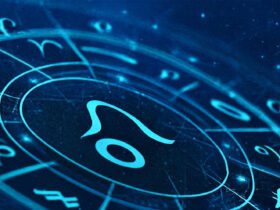The Rationality of a Triune God

When I was in teacher’s college, I wanted to write my thesis on the effects of a religious conversion on a student’s academic performance. Even though I had measurable data, my adviser rejected my proposal, since in his view such a study was “unscientific.” It was then that I began to ask myself what determined the “scientific nature” of a piece of research, since the effect of belief in God on our motivation to study and our subsequent success was just as real and measurable as the influence of our father, mother, environment, and even our teachers.
There prevails the misguided notion that “scientific” research must by definition assume the non-existence of God. This is the methodological assumption of science called methodological naturalism: we must study phenomena as if their cause in the person of God did not exist. Such a methodological assumption called methodological naturalism is, by its very nature, unscientific, since it assumes a priori—i.e. without evidence to support it—that there does not exist a Supreme Intelligence, which is the ultimate cause of all reality. Such a position has nothing to do with an objective, scientific apprehension of truth, but represents a form of belief in the non-existence of God.
Not long ago, I read my child a story about a little baby elephant who, disregarding its mother’s warnings, went to the river, only to run into trouble. A crocodile lurking in the river seized it by the nose and began tugging on it so hard that the appendage became a long trumpet. Thus arose the elephant of today with its elongated prehensile nose called a trunk.
The fairy tale bears a striking resemblance to our biology textbooks, which relate the story of the origin of the species. People with academic titles tell us that for millions of years the giraffe stretched its neck in order to browse the high foliage of trees—hence its long neck; that for eons reptiles flapped their forelegs, which eventually developed into wings, so that the reptiles turned into birds; that fish, driven by hunger, emerged on dry land and developed lungs capable of breathing air. How are these stories any different from that of the baby elephant and the crocodile? The only difference is that the crocodile stretched the elephant’s nose for a period of a few minutes, while the process of evolution accomplished this over several million years. The difference in time determines the “scientific nature” of the tale.
The textbook illustrations make it look all so clear and simple. We have grown so used to hearing about “the fact of evolution” that we no longer ask the question, “how is it possible?” After all, the growth of an animal’s neck by even ten centimeters is not a matter of accidentally acquiring an extra number of vertebrae. You need a change in the quantity of skin, in the length of blood vessels, in blood pressure, cardiac output, the muscular and respiratory systems, alimentary canal, and many other things besides. The complex changes of an entire organism, which would enable a long-necked creature to survive, cannot be reduced to a single mutation of a certain gene. There would have to take place a whole series of additional perfectly matching, well-integrated mutations of a precisely determined quality, quantity, and direction.
A simple analogy: we have a ten-floor inhabited building. The owner suddenly decides to add another floor to the building—not at the very top, but between, say, the existing fifth and sixth floors. Would any contractor undertake such a job? I doubt it, especially as the owner wants the building to remain in use during the makeover. This means that the people are not moving out, and that those living above the fifth floor will have to receive normal services in order to function. They will have to be guaranteed a supply of water, electricity, gas, heating, provided regular means of waste disposal, and assured that their furniture will not be knocked over while their apartments are being raised.
Though common sense balks at the notion of gradual structural change, biological evolution is a serious field of science, which tells fairy tales about a little pachyderm who for millions of years walked to the river where for millions of years a crocodile tugged regularly at its nose, thus giving rise to the elephant’s trunk of today. Why is this called science? Precisely because such a version of events does not require the existence of God the Creator! Given the conceptual constraints modern science imposes upon herself, only such a theory can be considered as scientific. But the very fact of the rationality of the universe, the laws of nature governing it, and all its living beings demands a supernatural explanation. Logical reasoning has good grounds for advancing the hypothesis of a First Cause bringing a rational universe into being; of an Omniscience Who knows all things, explains all things, and does not require explanation. If we would only for a moment put aside the “scientific” assumption that God does not exist because He could not exist, it would become immediately clear to us that the necessity of God’s existence springs logically and consistently from precisely the universe we have around us.
Our entire universe is built in such a way as to sustain our existence. If we were to change but one small detail of the laws of nature, human existence would be rendered impossible. And yet, here and now, the universe fits us like a glove—so well, in fact, that we would fain say the universe were created for us.
Hence our conclusion that the existence of the universe—including you and me—is not accidental. We did not come into existence as a result of random circumstances in a chaotic universe. Rather, we have been placed in a rationally structured cosmos where everything fits together harmoniously and where every element has its purpose and meaning. We simply cannot not ask the question: for what purpose? Whatever others might say, such a question remains an absolutely rational question, since order as a rule does have sense and purpose. Seeking an answer to the question of the purpose and meaning of existence leads inescapably to the scientific hypothesis of an Omniscience Who knows all things.
This has nothing to do with falling back on religious explanations in the absence of scientific ones. The point is that the very existence of the universe, its rationality and cognizability, springs from the same source as man’s existence within this universe. Only rational minds in a rational universe can create science, culture, and civilization. Science could not exist if the universe were not rational and knowable. The time has come to acknowledge that science can no longer function properly by denying the existence of God as First Cause. Can one resist citing here the scriptural dictum, “The fear of the Lord is the beginning of knowledge” (Pr 1: 7)?
No need to present here the entire logical argument put forward by Dr. Zbigniew Jacyna-Onyszkiewicz, who, through his scientific study and research, came to precisely such a conclusion. Anyone can read his books, if only his Omniscience or The Unitrinitarian Mystery of God. I earnestly encourage our readers to discover these and other works for themselves, and especially to see how, from the scientific knowledge he acquired, this cosmologist and professor of quantum physics draws conclusions about the role of God in the working of the universe. I will touch here on one point only, namely the fact that a rational God, who is Omniscience Himself, must of necessity be a unitrinitarian one.
It is interesting that for twenty centuries philosophers, and representatives of the natural sciences in particular, have questioned the doctrine of the Trinity as being incompatible with our daily experience and plain reason. Every child knows that 1 + 1 + 1 equals not 1, but 3. Why, then, does the Church stubbornly maintain the “irrational” notion that alienates so many rationally thinking people? Modern science enables us to understand that two thousand years ago the hem of the curtain of the mystery of the Trinity, which surpassed the knowing capabilities of those living at the time, was raised. Now we find plausible and can believe in the Trinity not just because “that is what the priests say,” but also because that is what our rational understanding of the universe demands. Our grasp of the limits of cognizability obliges us to accept the hypothesis that there exists an Omniscience Who knows all things. Logic tells us this Omniscience must be personal. It also tells us that Omniscience could not exist as a single person. An Omniscience consisting of one person could not have knowledge of mutual interpersonal relations; i.e. it could not embrace everything there is to know and discover. Omniscience must comprise a second and third Person, who in their mutual relations would embrace all conceivable knowledge. Onyszkiewicz even presents a simple model, by which he shows that the number of persons constituting Omniscience must be three, since only this condition allows for the same number of independent interpersonal relationships—that is, precisely three.
Interesting also are the conclusions that Onyszkiewicz draws concerning the nature of these relationships. It appears they must of necessity consist in the mutual love existing between one person, who springs from no one and requires no explanation, and a second person, who springs from the first. This love is expressed in the third person, who consequently proceeds from the first two. Of course, all three persons love one another reciprocally: the first and the third, with the second being the expression of their love, and the second and the third, whose love is expressed in the first person. Each of the three persons constitutes Omniscience and Love than which no greater love is conceivable. It simply cannot be otherwise, since only a Triune God embraces all possible knowledge about all the kinds of personal relationships. Putting it more simply, a God consisting of a single person cannot be Omniscience, since he does not know what love is.
Consider now how important the triuneness of God is to our human existence. When we read that God created man in His own image and likeness (Gen 1: 27-28), we often fail to realize how profoundly this act rests on the unitrinitarian nature of God. God created man, from whom sprang woman, and from the two sprang a child. Thus, in creating the family, God provided us with an image of all the possible loving relationships that exist within Him.
Thus the hypothesis of an Omniscience than which no greater knowledge is conceivable leads us to inescapable conclusions about the meaning of the existence of a rational universe and our place as human beings within it. Quite simply, this Omniscience, which must be triune in a personal sense, so delighted in the relationships of love that He desired to share this love with others. That is why we were created; and that is why we were created in precisely such a universe, which we are attempting to discover through scientific methods that exclude the notion of God. It is easy to see that if we stubbornly persist in a scientific inquiry based on methodological naturalism, we will always remain limited and impoverished, cut off from a concrete, palpable, and measurable knowledge of the relations of love between ourselves and the Triune Omniscience, Who knows all things, Who created us out of love, and Who waits for us to willingly and consciously respond to this love.






